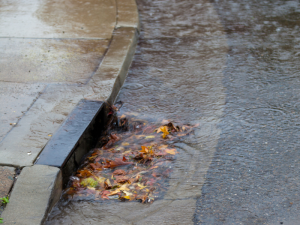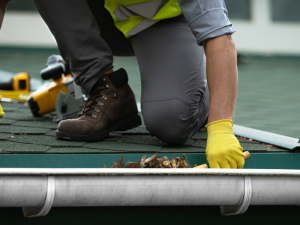The Critical Importance of Drainage System Regular Maintenance

Your drainage system is the unsung hero of your home, but regular maintenance for your drainage system is essential to ensure it works effectively. By prioritizing drainage system regular maintenance, you can prevent costly repairs and keep your home safe. Yet, it’s often overlooked until an issue arises. For homeowners, understanding the importance of regular maintenance for your drainage system can save you from unexpected headaches and costly repairs. In this post, we’ll explore why taking care of your drainage system should be a top priority, what steps you can take to keep it in good shape, and when it’s time to call in the professionals.
Understanding Your Drainage System and Its Regular Maintenance
A well-functioning drainage system is essential for keeping your home dry, safe, and comfortable. Your drainage system comprises various components, including gutters, downspouts, drain pipes, and sewer lines. Each part plays a crucial role in diverting water away from your home. Regular maintenance of these components is vital to prevent damage.
When these components are neglected, common issues such as clogs, leaks, and even structural damage can occur. Blocked gutters can cause water overflow, leading to erosion around your foundation. Leaking pipes can result in mold growth and water damage inside your home. By understanding how your drainage system works, you can better appreciate the need for regular maintenance.
Benefits of Regular Maintenance for Your Drainage System
Regular maintenance for your drainage system not only extends its lifespan but also prevents costly repairs. Preventative measures, such as cleaning your gutters and checking for leaks, can help you avoid costly repairs in the long run.
Routine maintenance also ensures that your drainage system operates efficiently. When water flows freely through your gutters and pipes, it reduces the risk of backups and overflows. This not only protects your home from water damage but also extends the lifespan of your drainage components. For more information on how proper drainage management can help prevent flooding, visit the Government of Canada – Drainage and Wetlands.
Additionally, a well-maintained drainage system contributes to the overall health of your property. Proper water management prevents soil erosion, which can weaken your home’s foundation. It also minimizes the risk of mold and mildew growth, safeguarding your indoor air quality.

Signs That Your Drainage System Needs Attention
Knowing the warning signs of a failing drainage system can help you address issues before they escalate. Look out for these common indicators that your drainage system needs attention:
– Slow Drains – If water takes longer than usual to drain from your sinks, tubs, or showers, it could be a sign of a clog in your pipes.
– Water Stains – Discoloration on your walls or ceilings may indicate a leak in your drainage system.
– Unpleasant Odors – Foul smells emanating from your drains can signal a blockage or buildup of debris.
– Pooled Water – Standing water around your foundation or in your yard suggests poor drainage and potential damage to your system.
By staying vigilant and addressing these signs promptly, you can prevent minor issues from becoming major problems.
Understanding how climate affects your home’s foundation can help you take proactive measures for your drainage system. Read more about this in our article on how climate affects your home’s foundation.

DIY Maintenance Tips for Homeowners
Maintaining your drainage system doesn’t always require professional intervention. Here are some simple, actionable steps you can take to keep your system in good condition:
– Clean Your Gutters – Regularly remove leaves, twigs, and debris from your gutters to prevent clogs and ensure proper water flow.
– Check for Leaks – Inspect your pipes and connections for any signs of leaks or corrosion. Addressing small leaks promptly can prevent more significant damage.
– Use Drain Screens – Place screens over your drains to catch hair, food particles, and other debris that can cause clogs.
– Flush Your Drains – Periodically flush your drains with hot water to clear out any buildup and maintain smooth water flow.
By incorporating these simple tasks into your regular home maintenance routine, you can ensure effective drainage system regular maintenance.
When to Call a Professional for Drainage System Regular Maintenance
While DIY maintenance is essential, some situations require professional expertise. Knowing when to call in a professional can save you time, money, and stress. Here are some indicators that it’s time to seek professional help with your drainage system:
– Persistent Clogs – If you’ve tried clearing a clog multiple times with no success, a professional plumber can diagnose and resolve the issue.
– Sewage Backups – Any sign of sewage backing up into your home is a serious problem that requires immediate professional attention.
– Extensive Damage – Structural damage, such as sagging gutters or cracked pipes, should be repaired by a professional to ensure long-lasting results.
Professionals have the tools and expertise to handle complex drainage issues and provide solutions that DIY methods can’t achieve.
Consistent drainage system regular maintenance is crucial for preventing costly repairs, improving efficiency, and protecting your home’s integrity. By understanding its importance, you can ensure that your drainage system remains functional and effective. By understanding how your system works, recognizing the signs of trouble, and taking proactive steps to maintain it, you can enjoy a worry-free home environment.
If you’ve been neglecting regular maintenance for your drainage system, now is the time to take action.
